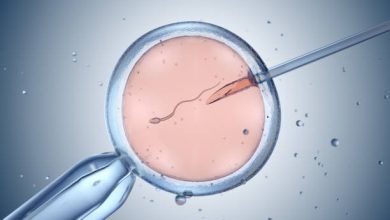7 Medical Factors Impacting Your Ability to Conceive


Embarking on the journey to parenthood is an exciting chapter filled with dreams of tiny toes and sweet lullabies. However, for some, this path may come with unexpected twists and turns. If you’ve been wondering about the secrets to making conception a little easier, you’re not alone.
Picture this: you and your partner have been eagerly trying to conceive for over a year, but with no success. Frustration sets in, and questions start to flood your mind. Could there be medical issues at play? Are there lifestyle changes that could make a difference?
Medical conditions such as irregular periods, fallopian tube blockages, or hormonal imbalances can hinder fertility. Yet, lifestyle factors also play a crucial role.
Simple choices like maintaining a healthy weight, steering clear of harmful substances, and even managing stress can impact your chances of conceiving.
Endometriosis and Fertility
Endometriosis is a condition in which the tissue that normally lines the inside of the uterus, known as the endometrium, grows outside the uterus. This misplaced tissue can be found on the ovaries, fallopian tubes, and other pelvic organs.
Endometriosis can cause inflammation, pain, and the formation of scar tissue, which may affect fertility in several ways:
- Ovulation Disorders: Endometriosis can disrupt the ovulation process, leading to irregular ovulation or even the absence of ovulation, which can make conception difficult.
- Fallopian Tube Blockage: The presence of endometriosis tissue on or near the fallopian tubes can cause blockages or damage, hindering the movement of eggs from the ovaries to the uterus.
- Inflammation and Adhesions: Endometriosis can cause inflammation in the pelvic area, leading to the formation of adhesions (bands of scar tissue) that can distort pelvic anatomy and interfere with the function of reproductive organs.
- Changes in Hormone Levels: Endometriosis is influenced by hormonal changes during the menstrual cycle. These hormonal imbalances can impact fertility by affecting the quality of eggs or the ability of the embryo to implant in the uterus.
- Increased Risk of Miscarriage: Women with endometriosis may have a higher risk of miscarriage, although the exact reasons for this are not fully understood.
Endometriosis is a condition that can affect women of all races and ethnicities, but its impact on Black women can be particularly significant. Studies have shown that Black women are more likely to experience severe symptoms of endometriosis and may face additional challenges in diagnosis and treatment.
- Delayed Diagnosis: Black women with endometriosis often experience delays in diagnosis compared to their white counterparts. This delay may be due to a variety of factors, including disparities in access to healthcare and a lack of awareness among healthcare providers about the prevalence of endometriosis in Black women.
- Increased Pain and Symptom Severity: Black women with endometriosis tend to experience more severe pain and symptoms compared to women of other races. This can have a significant impact on their quality of life and may require more aggressive treatment approaches.
- Higher Risk of Complications: Endometriosis in Black women may be associated with a higher risk of complications, such as infertility and pelvic inflammatory disease. This highlights the importance of early detection and management of the condition in this population.
Managing endometriosis through medical treatment, such as pain management and hormonal therapies, can help alleviate symptoms and improve fertility outcomes. In cases where medical treatment is not effective, surgical options may be considered to remove endometriosis tissue and improve fertility.
It’s essential for women with endometriosis who are trying to conceive to work closely with their healthcare providers to develop a personalized treatment plan that addresses their specific needs and concerns.
RELATED: 3 Fertility Options For Women Diagnosed with Endometriosis
Other Medical Factors Affecting Fertility
Women hoping to get pregnant sometimes wonder if there’s anything they can do to make it easier to conceive. Those questions might take on an added edge if a couple has been having unprotected sex for at least a year with



